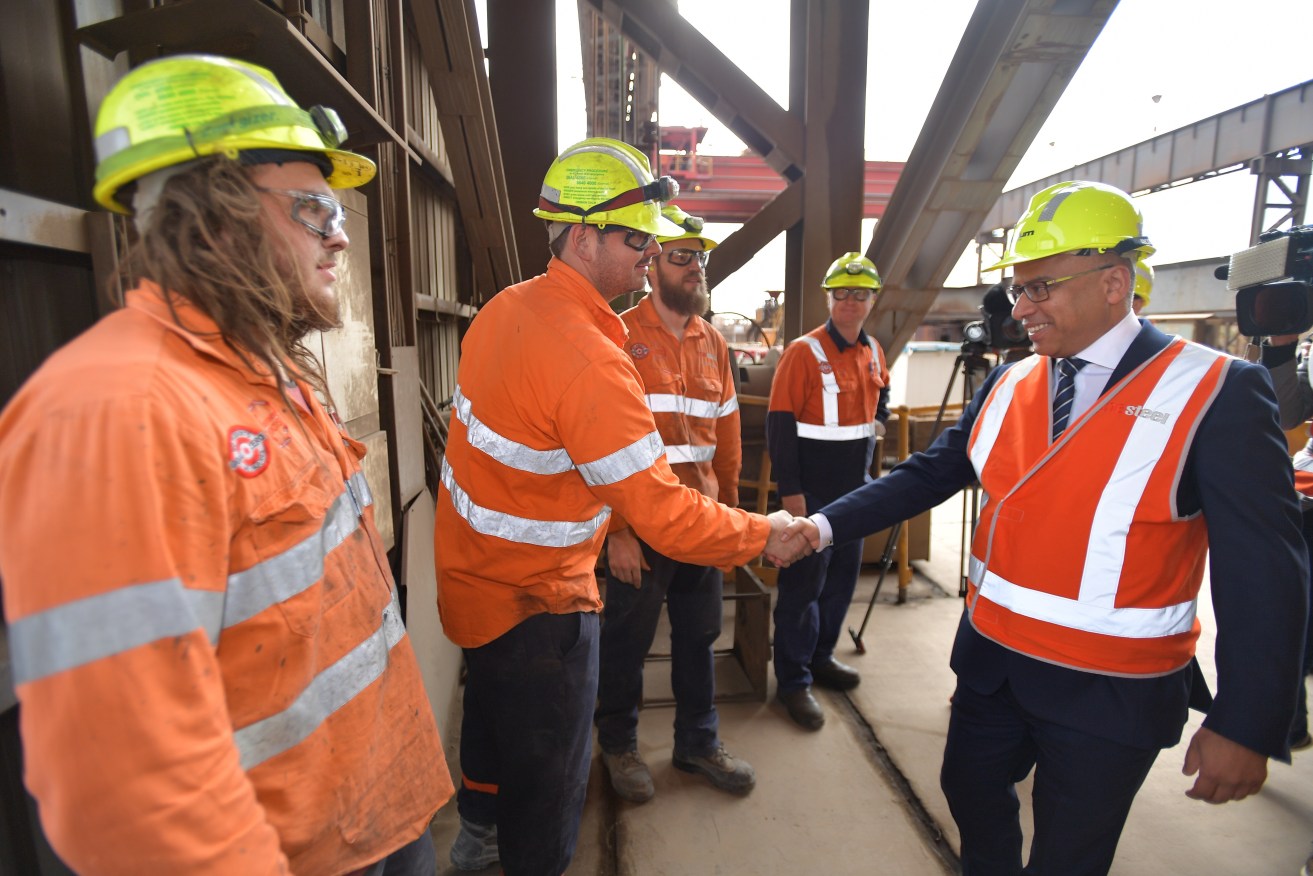Adelaide at epicentre of cutting heavy industry emissions
Adelaide is leading vital national research to tackle damaging carbon emissions from Australia’s heavy industries like iron and steel, aluminium, and cement, with the launch of a $200 million research centre at Lot Fourteen.


GFG Alliance's Sanjeev Gupta greets workers on his visit to the Arrium Steel plant in Whyalla. Photo: AAP/David Mariuz
Department of Energy and Mining chief executive Dr Paul Heithersay officially launched the Heavy Industry Low-Carbon Transition Cooperative Research Centre this week, saying vital work on establishing this national group puts SA at the forefront of driving investment in a low-carbon future.
Among those signed up as partners is GFG Alliance, which owns the Whyalla steelworks, along with companies from the Pilbara in Western Australia, northern Tasmania, and Gladstone in Queensland.
“The tireless work that went into building the CRC has paid off and has put South Australia in a leading role in driving the national and global effort to ensure that one of our largest industry sectors, worth about $180 billion annually, is also our most responsive to the challenges of climate change,” he said.
“Australia is leading the research and demonstration of technologies and practices that will pioneer and grow low-carbon economies internationally.”
The centre has partners across three distinct heavy industry sectors – alumina, iron and steel, and cement and lime, as they work to find ways to reduce carbon emissions.
Industry contributes 32 per cent of global emissions according to the centre, three-quarters of this comes from generating heat from fossil fuels, and new, low-carbon technologies would help meet the Australian Government’s obligations to the United Nations Paris Agreement and Australia’s National Hydrogen Strategy.
The centre’s goal is for world-leading research to create decarbonisation technologies that can be commercialised and lead to net-zero production, unlocking a potential $250 billion in investment to 2050 in new projects.
Centre chief executive officer Felicity Lloyd said the transition to carbon neutral economies needs to happen faster and Australian researchers and industry players are at the heart of a global push to fast-track new heavy industry technologies to drive down emissions.
“Through the HILT CRC we have 48 partners across the research and industry sectors, all dedicated to developing solutions that will drive emissions down and allow some of Australia’s core industries, such as steel, aluminium, and cement, to grow,” she said.
Industry partners include GFG Alliance which owns the Whyalla steelworks, and general manager Wayne Harris said working with the centre supports the company’s green steel ambitions to enable the supply of hydrogen to de-carbonise heavy industry.
“We are excited to be part of the HILT CRC as one of their core partners to bring together research with industry expertise to develop the technologies needed to transition GFG to low-carbon green steel, and to secure the long-term future of our operations,” Harris said.
Other core partners of the centre include Adelaide University, Australian National University, Curtin University, ADBRI, Alcoa, Fortescue Metals Group, Liberty, Grange Resources, South32, Roy Hill and the CSIRO.
Partnerships have also been established through Australia and universities and government agencies in Germany, the United States, Japan, the United Kingdom and Canada.
“In scoping the potential of our work, we expect that we can increase industry competitiveness and provide more than 370,000 new direct and indirect jobs in the sector,” centre research director Professor Graham Nathan said.
He said the strength of the body was being able to adopt problem-solving research quickly through industry partners, focusing research on the practical challenges companies faced.




